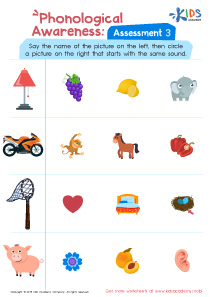Elementary Phonics Worksheets for Ages 3-4 - Page 2
30 filtered results
-
From - To
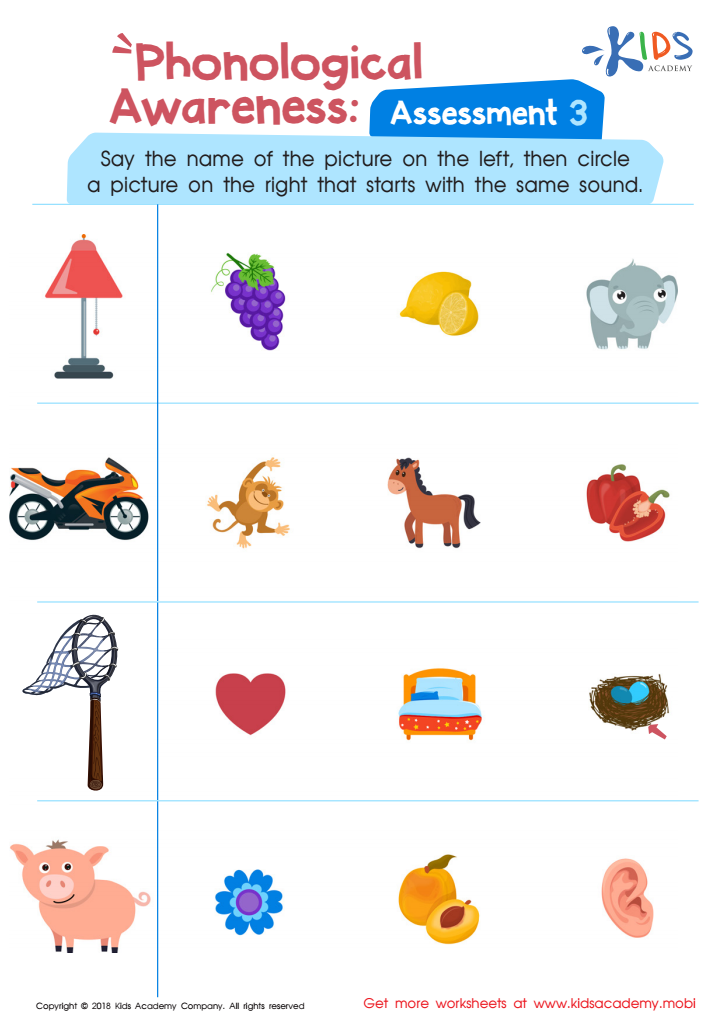

Phonological Awareness: Assessment 3 Worksheet
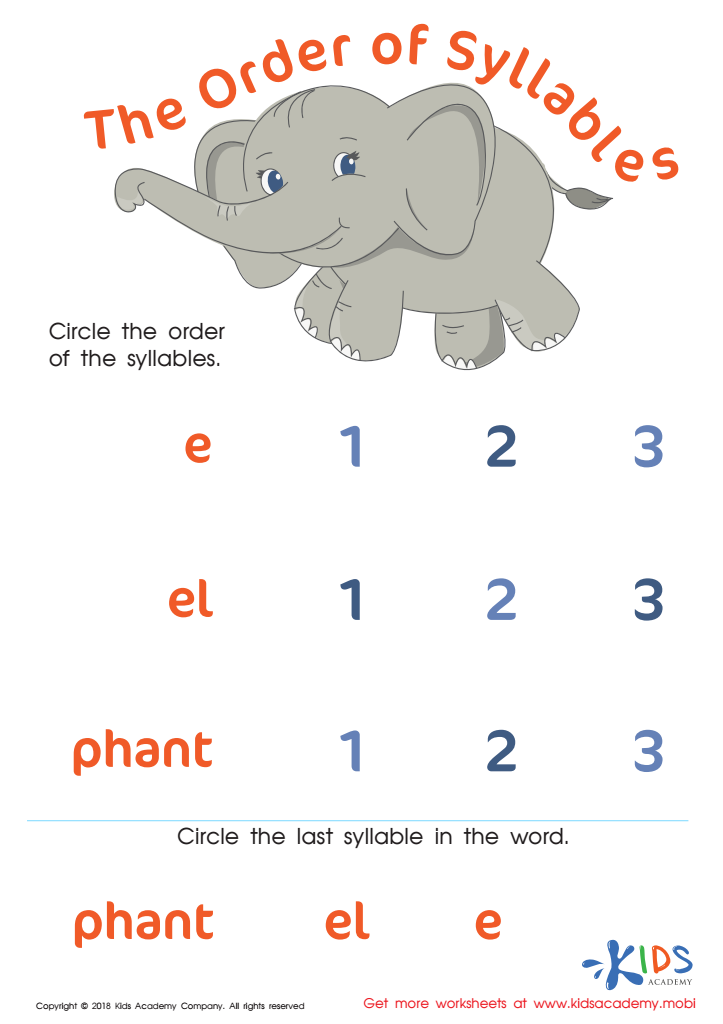

The Order of Syllables Worksheet


Long and Short E Worksheet
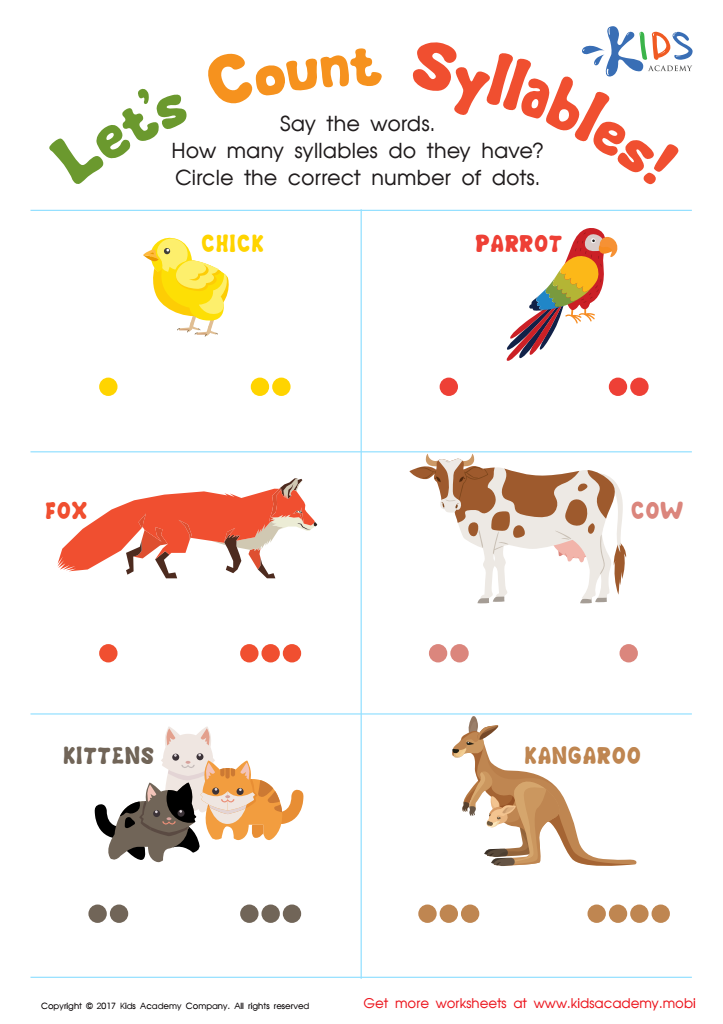

Lets Count Syllables Worksheet


Phonological Awareness: Assessment 1 Worksheet
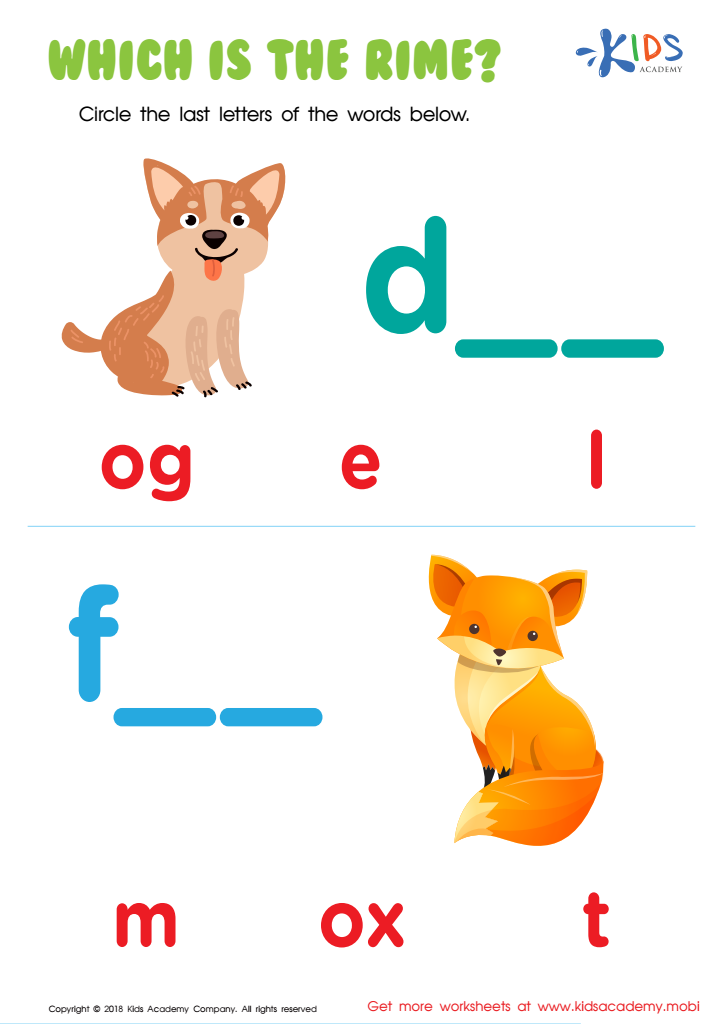

Which Is the Rime? Worksheet
Elementary Phonics worksheets for Ages 3-4 serve as a foundational pillar in early childhood literacy, offering a multitude of benefits for young learners. At this crucial developmental stage, children are highly receptive to new sounds and patterns, making it the perfect time to introduce Elementary Phonics. These worksheets are specifically designed to cater to the learning capabilities of children aged 3 to 4, providing them with an engaging and effective way to grasp the basics of reading and writing.
The utilization of Elementary Phonics worksheets for Ages 3-4 aids in enhancing phonemic awareness, which is the ability to hear, identify, and manipulate individual sounds in spoken words. This is a critical precursor to reading. Through fun and interactive activities, children learn to recognize letters, associate them with their corresponding sounds, and gradually build their vocabulary.
Moreover, these worksheets foster a love for learning and reading from an early age. They are crafted to capture the attention of young learners with colorful illustrations and captivating tasks that make education enjoyable. By integrating these worksheets into a child's learning routine, parents and educators can ensure a smoother transition into more advanced literacy skills, setting a solid foundation for future academic success.

 Assign to My Students
Assign to My Students




